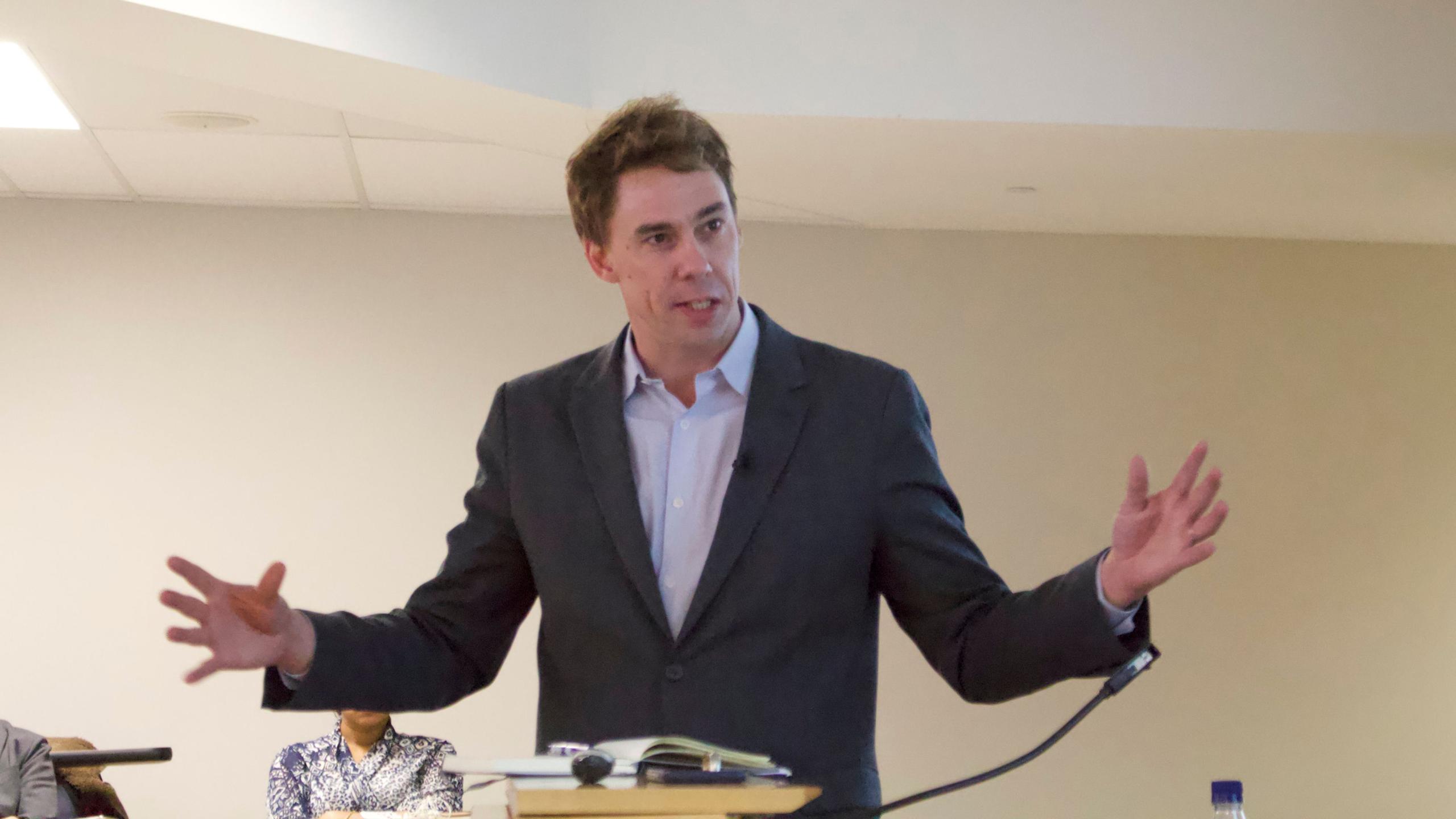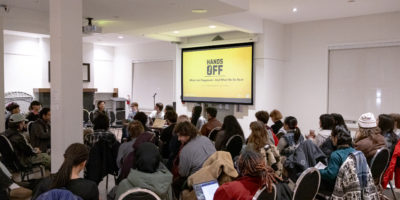By Tyler Choi
The future of political campaigning is in data, technology and humans according to Guillaume Liegey, who spoke at the Ryerson Leadership Lab’s International Issues Discussion. Liegey is a digital campaigner and is known for his work with French president Emmanuel Macron on the presidential campaign of his party, “En Marche!”
By predicting where to knock doors, and bursting bubbles through the simple act of conversation during political campaigns, Liegey envisions the effective use of data as one of the antidotes to the political populism sweeping across the world.
At a forum held at the Ted Roger’s School of Management where the U.S. midterm elections loomed in the air, Liegey spoke to an audience comprising of students, political campaigners and volunteers. His company Liegey Muller Pons (LMP) applies data software to know the critical concerns of a population and where to make efforts to engage with voters.
Liegey’s resume involves successful campaigns for Emmanuel Macron, the 2015 Spanish elections as well as his hometown of Schiltigheim, France which is a commune numbering a little over 31,000 people.
“My point is that what I am about to tell you is something not reserved for the Barack Obama of today or tomorrow, it is something anyone running for office can consider,” said Liegey.
It is a deliberate choice to invoke Obama’s name, given that Liegey credits the former president’s innovative 2008 campaign as sparking his interest during his time as a Harvard student. Liegey was fascinated by the ease of his participation in the political campaign of Obama-Biden in 2008. He spent a few minutes on a website where he punched in his name, zip code, and phone number—he went from being curious to call in to become a campaign volunteer the next day. Liegey knocked on doors in New Hampshire, a few hours north of Boston.
The use of data obtained through the Internet to seek the right voter and volunteer was a revelation that convinced Liegey that, “Technology combined with data and humans makes it possible to make a large-scale human-centric campaign.”
Liegey returned to his native France brimming with the lessons he applied and learned from the strategies of the Obama campaign to the eventually successful of former French president François Hollande’s campaign. However, Macron was at the forefront of his presidential campaign at the time. Data collected from Macron’s campaign showed support for “En Marche!”, the undecided and support for his far-right populist opponent Marine Le Pen.
What caught Macron’s eye, according to Liegey, was that their campaigning priorities should not be reaching out to the converted, but to the unlikely voters and to engage with them to understand their concerns.
Liegey recalls Macron telling his campaign volunteers to, “Go out in neighbourhoods that are different from your neighbourhoods, engage with them, and listen to them.” This was also a lesson that mirrored ones Liegey learned in New Hampshire where he came to the realization that the most effective way to change someone’s mind is going door-to-door.
Liegey noted the “Front national” party (now renamed the National Rally) headed by Le Pen, and Brexit demonstrated that, “We live in a bubble and that’s okay, but in politics, it’s easy to see only the tip of the iceberg…The problem is if you only look at the tip of the iceberg you don’t understand what’s going on in the majority.”
The intersection of technology, data, and political campaigning has been a tense one lately. Allegations of Russian interference and collusion in the 2016 American elections, fake news that can propagate and disorient, social media erecting information prisons, and Cambridge Analytica’s use of Facebook data cast a shadow over social media data collection.
Populism’s allure remains a powerful one, and the political climate feels more divided than ever. But if Liegey’s beliefs and track record have anything to say, is that cold hard data could also bring us closer as humans.













Leave a Reply